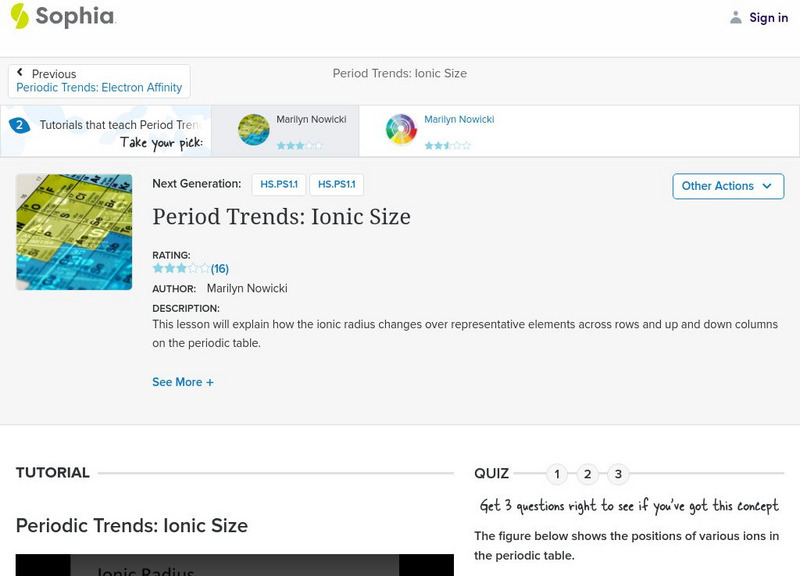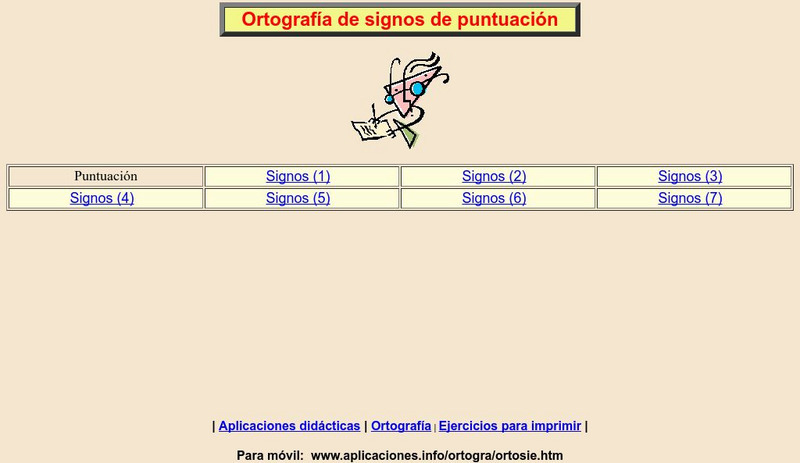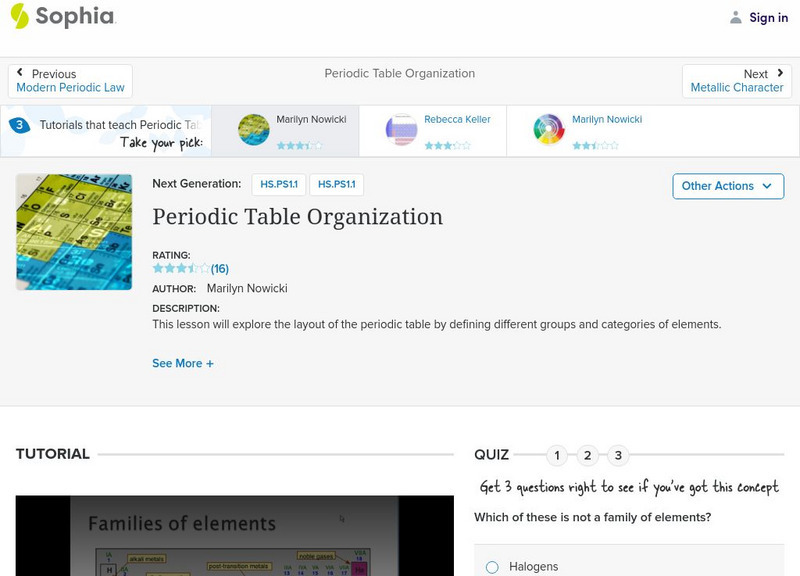Sophia Learning
Sophia: Periodic Trends: Atomic Radius: Lesson 1
This lesson will explain how the atomic radius changes over representative elements across rows and up and down columns on the periodic table. It is 1 of 3 in the series titled "Periodic Trends: Atomic Radius."
Sophia Learning
Sophia: Period Trends: Ionic Size: Lesson 1
This lesson will explain how the ionic radius changes over representative elements across rows and up and down columns on the periodic table. It is 1 of 3 in the series titled "Period Trends: Ionic Size."
Sophia Learning
Sophia: Periodic Trends: Electron Affinity: Lesson 3
This lesson will explain how the electron affinity changes over representative elements across rows and up and down columns on the periodic table. It is 3 of 3 in the series titled "Periodic Trends: Electron Affinity."
English Club
English Club: Abbreviations
This EnglishClub tutorial for abbreviations for the four main types of abbreviations and the ways to punctuate each.
English Club
English Club: Punctuation
This EnglishClub tutorial explains what punctuation marks are, what punctuation marks do, and why punctuation marks are important. Links to supplemental songs and videos about punctuation are also provided.
Application Magazine
Aplicaciones: Ortografia Interactiva De Signos De Puntuacion
Which punctuation do we use? Here you will find seven different set of exercises so you can test your knowledge of when to use a period, a comma, a colon or parentheses.
Sophia Learning
Sophia: Periodic Table Organization: Lesson 1
This lesson will explore the layout of the periodic table by defining different groups and categories of elements. It is 1 of 3 in the series titled "Periodic Table Organization."
ClassFlow
Class Flow: Periodic Table Trend
[Free Registration/Login Required] This flipchart helps students learn about the periodic trend of Atomic Radius of Elements across a Period and down a Group.
ClassFlow
Class Flow: Punctuation
[Free Registration/Login Required] This flipchart introduces students to punctuation and focuses on question marks and periods at the ends of sentences.
Physics Classroom
The Physics Classroom: Kepler's Second Law
Kepler's second law of planetary motion is stated and explained. An animation of the orbit of a planet and an accompanying graphic assists in explaining the meaning of the law of equal areas.
ClassFlow
Class Flow: Types of Sentences
[Free Registration/Login Required] In this flipchart students learn to recognize and punctuate different types of sentences.
ClassFlow
Class Flow: Electromagnetic Spectrum
[Free Registration/Login Required] In this Flipchart, students are introduced to the electromagnetic spectrum. Students will learn the names of the types of waves, and the order in which they are arranged. Additionally, students will...
Sophia Learning
Sophia: Periods
This lesson introduces periods and how they are used. This tutorial lesson shares a short slideshow with the lesson's content.
ClassFlow
Class Flow: Ending Punctuation
[Free Registration/Login Required] Developed for first grade students to review ending punctuation marks:., ?, and ! Activotes are used at the end to test understanding. Students learn the correct terms for telling, asking, and...
Other
Super Teacher Worksheets: Punctuation: Period and Question Mark [Pdf]
This PDF gives a simple definition of a period and question mark, an example of when to use each type of punctuation and then has thirteen simple sentences for learners to practice their skills of identifying what type of ending...
Other
My Physics Lab: Simple Pendulum
Experiment with a pendulum to see what happens to the oscillation when you change the mass, gravity, or damping. Students can also change the starting position. Site includes equations to help students understand what is happening in the...
Northern Illinois University
Faculty Development and Instructional Design Center: Punctuation Quiz
A ten question punctuation quiz utilizing comma, colon, semicolon, and a period. If answered incorrectly, students are able to select a different answer. The percentage of accuracy from their first answer is calculated at the top.
Ducksters
Ducksters: Physics for Kids: Properties of Waves
Kids learn about the properties waves in the science of physics including amplitude, wavelength, frequency, period, and speed.
Other
University of Winnipeg: The Simple Pendulum
The periodic motion of a pendulum is described with words and equations; little conceptual emphasis. Sample problems with solutions are provided.
Wolfram Research
Wolfram Math World: Period
This site from MathWorld briefly states the period of a periodic funciton. The site has links to related topics.



















